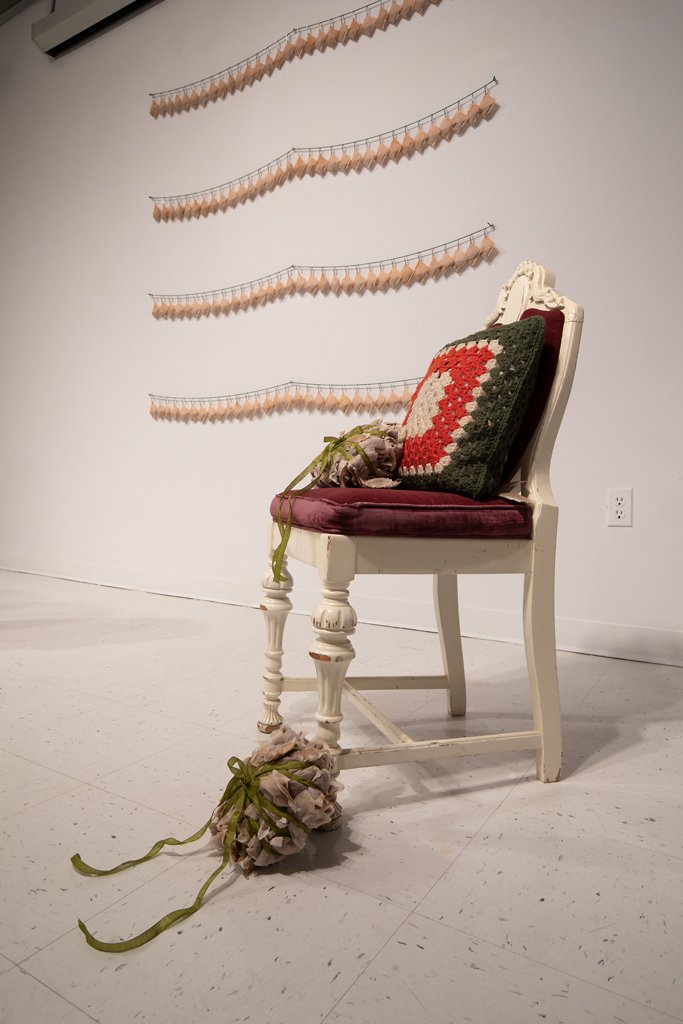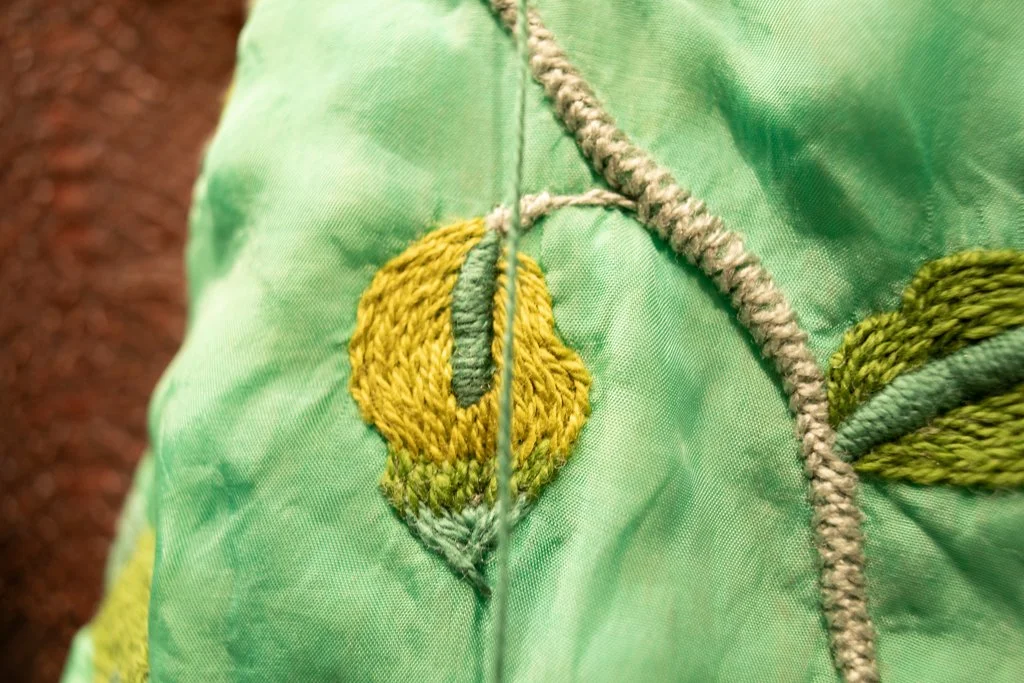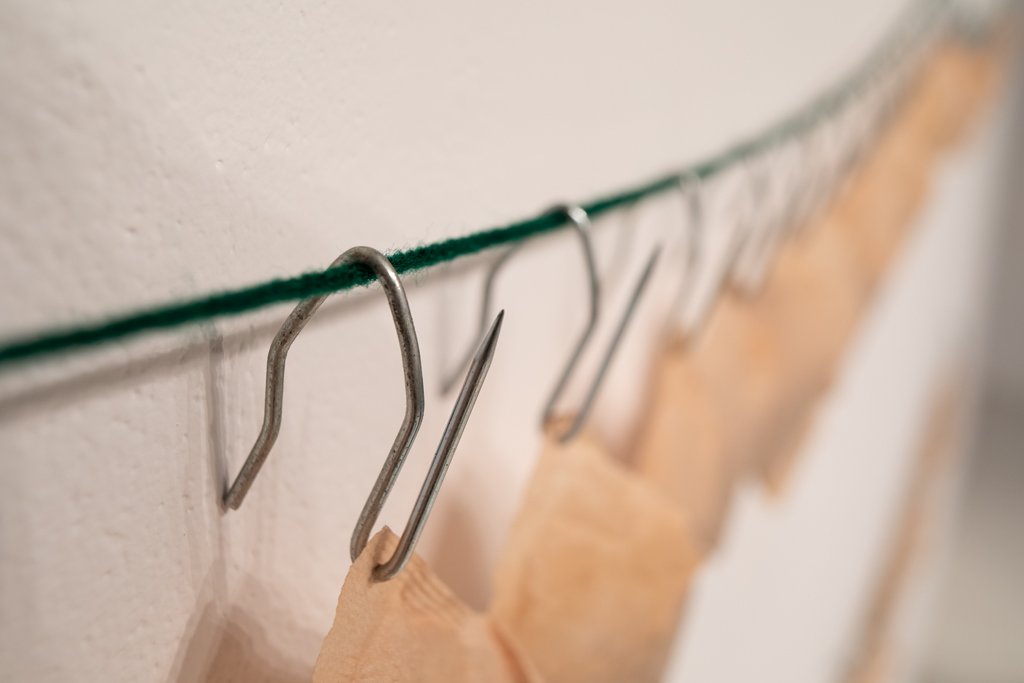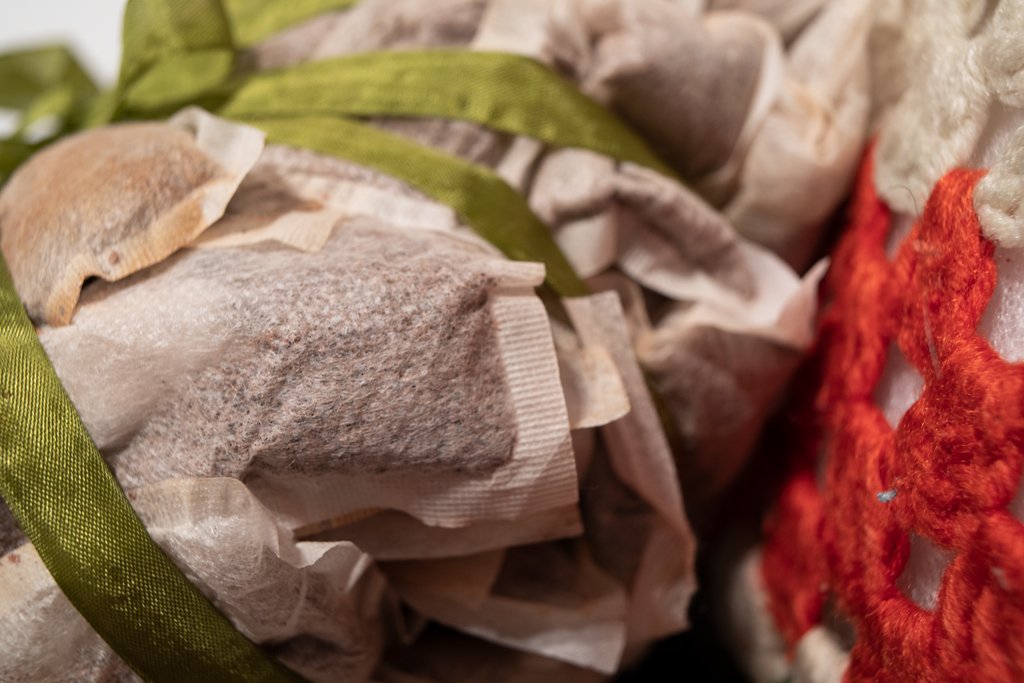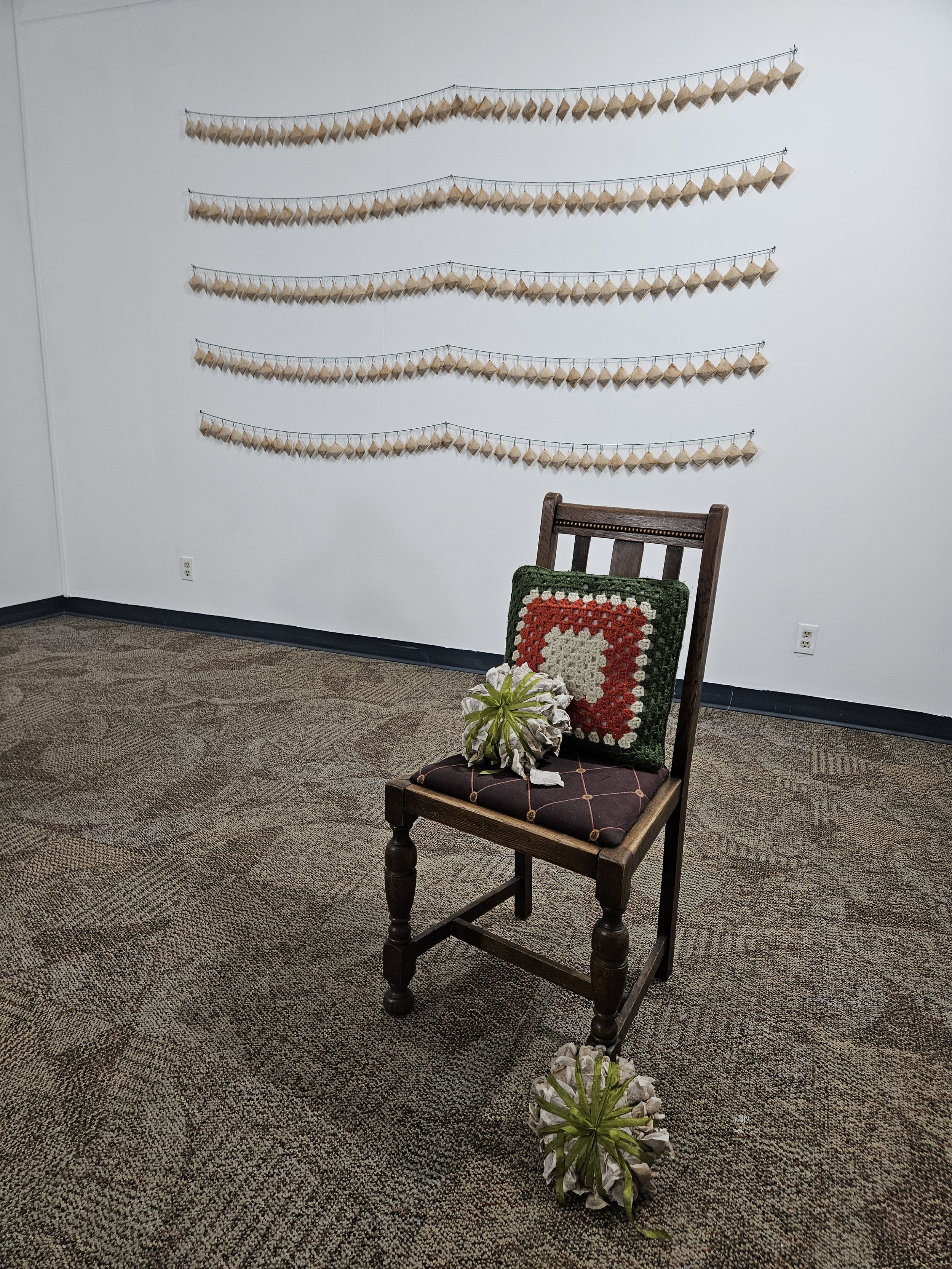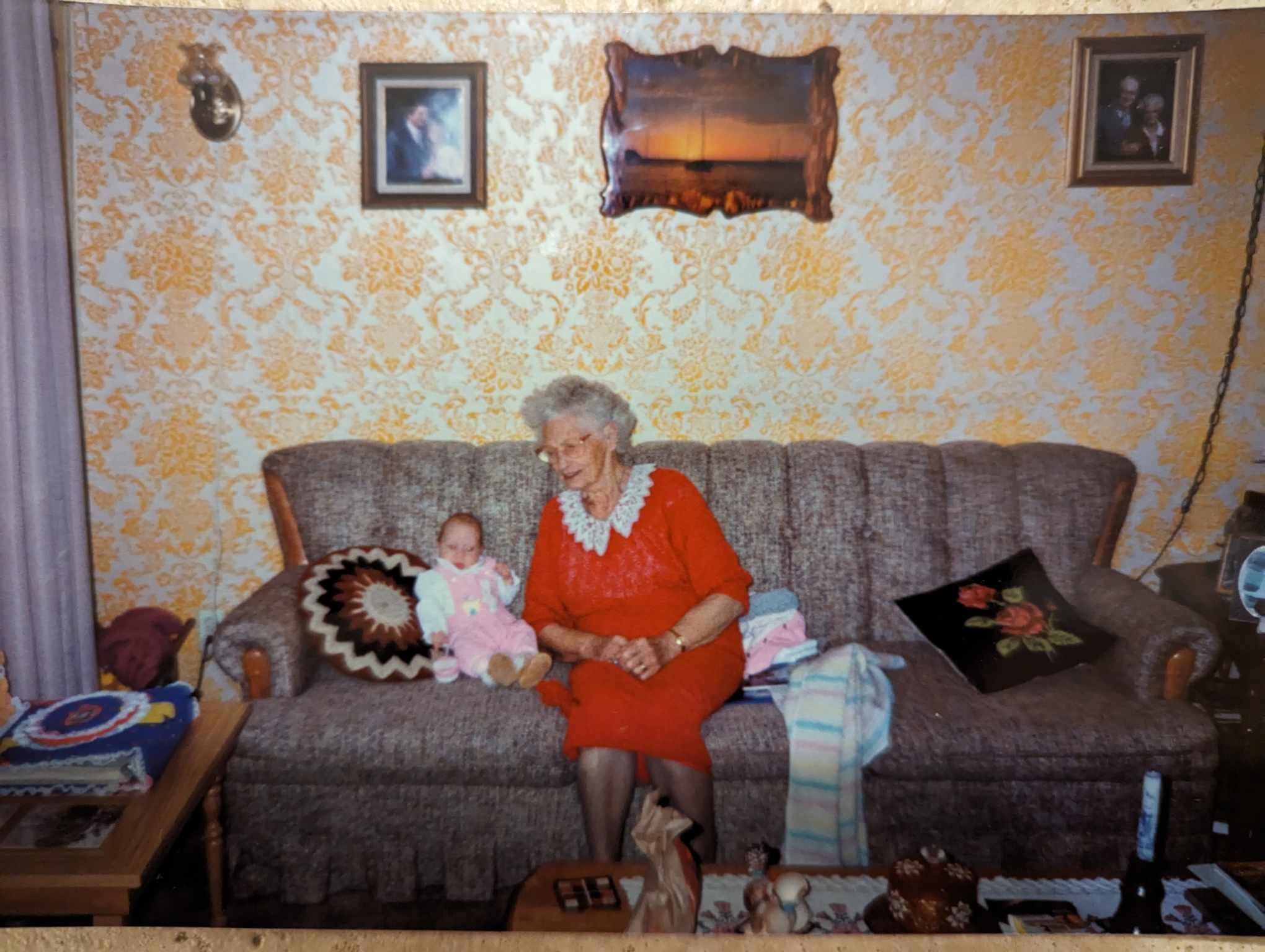
Presented at:
Ministry of Casual Living (January - February 2024)
Victoria, British Columbia
&
Concordia University (April 12, 2022)
Montreal, Quebec
Stsǫǫ Oma Tjitske shah kut, sh’kut łuuk delt’äl (2022-present)
circa 1960s house robe found in pillow case my Great-Grandma crocheted, Nova Scotian farmed Atlantic salmon sourced from Saum Mom, cotton yarn, bamboo yarn, Miyuki seed beads, Preciosa seed beads, nylon thread, tea bags, curtain hooks, Red Rose tea bags, ribbon, Great-Grandma's crocheted pillow on sourced chair
Shnąą wuta’ wunąą Tjitske (Teresa) mǫǫsį’. Stsǫǫ Oma shah kut nt’eh. Łuuk delt’äl thuh ihthoh. Sh’kut łuuk delt’äl aktsayh. Like the salmon, my heritage traverses across vast amounts of territory. As a mixed-race person, grandparents play a significant role in my life as living ancestors, accessible knowledge keepers, and confidants. I was fortunate enough to have known all my grandparents as well as two great-grandparents, my Oma and Opa. My Oma passed away in 2005 at the age of 98. She was born in Friesland, a northern province of the Netherlands. She lived there until 1953 when she and my Opa moved their family to Canada after surviving the Second World War.
My Oma was a beautiful person that did what she could for her family. The family brought with them the mentality of “use what you have” and DIY culture after they experienced war. This was passed down to their children and their descendants.
Through the discovery of a house robe my Oma had crocheted into a pillow to use as batting, I created an ever-changing reconstruction of the robe as a symbol for the interconnections I have with my Oma, and namesake, that spans across time, memory, and worlds.

